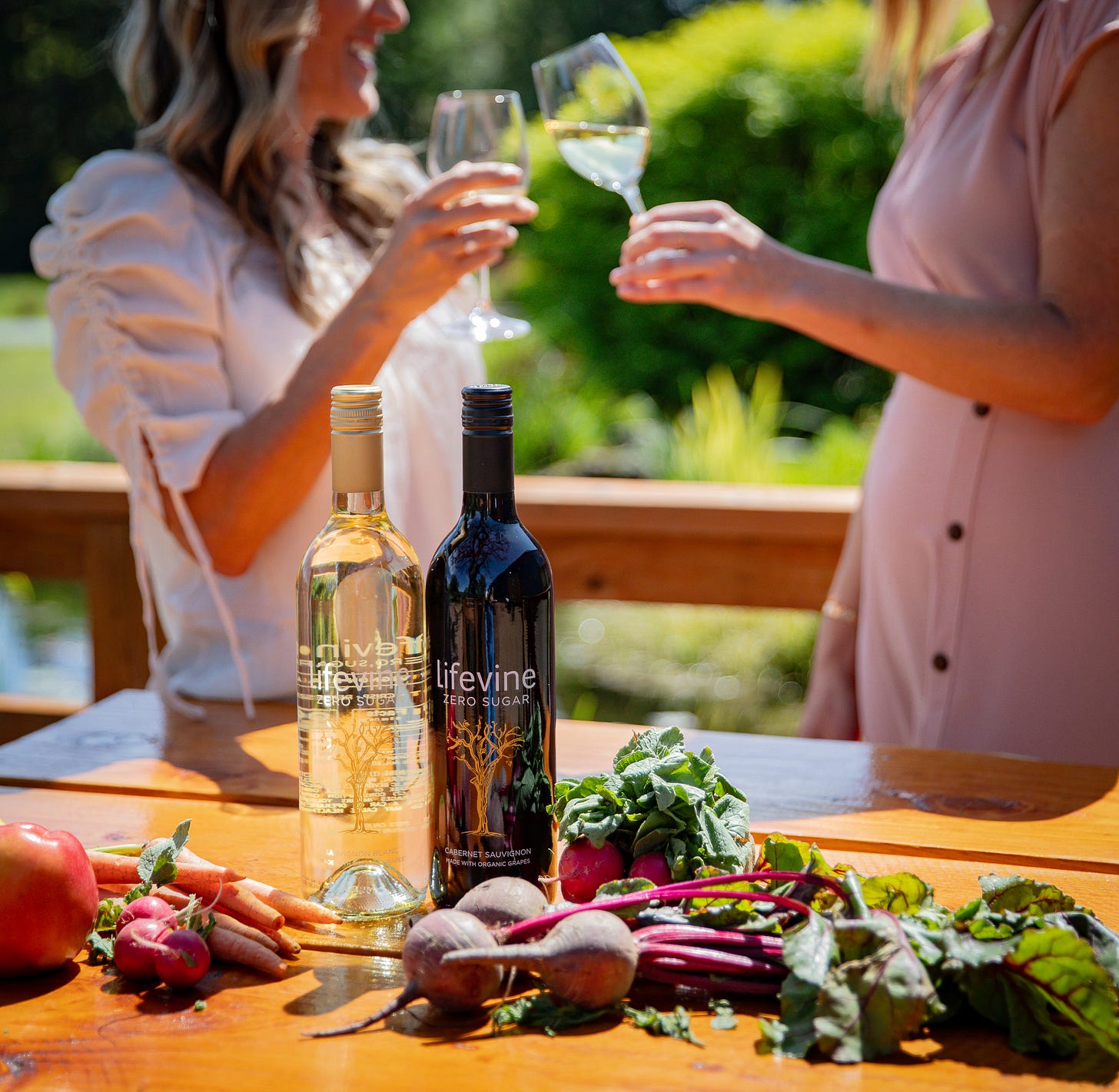This Zero Sugar Wine is a Great Porch Pounder
Lifevine is also made from organic California grapes
For the past few years, I’ve seen Lifevine wines in my local grocer. The wines tout “zero sugar” on the label, which is also adorned by a gold grapevine.
You’ll see something else on a bottle of Lifevine wine that you won’t see on many others — a nutrition label. On the back of its Cabernet Sauvignon, for example, you’ll find that a 5-ounce pour contains 123 calories, and 3.9 grams of carbs. The bottle also states that the wine is certified organic by California Certified Organic Farmers (CCOF).
So, what does that mean to the average wine drinker combing the shelves for something to enjoy with friends on a warm Spring evening?
I asked Oren Lewin, CEO of IBG Wines, which owns Lifevine, to explain.
He said that many consumers are looking for items that are lower in sugar — up to 72 percent, according to the International Food Information Council's 2023 Food and Health survey of more than 1,000 US consumers, and his company wanted to tap into that market, while producing a good product.
The CEO added that consumers are driving the rapid growth of zero sugar products in many food and beverage categories, including the adult beverage sector. “The Zero Sugar beverage market was $3.3 billion in 2023 and is growing up to 15 percent per year,” says Lewin.
And, although the average glass of wine does have the same amount of carbs as Lifevine, what’s different is that there are no added sweeteners. “Wines can be sweetened with added sugars or grape concentrates to mask imperfections or lack of character,” says Lewin. Instead, Lewin works with California vineyards in Mendocino County, Lake County, and Lodi that don’t use pesticides to source grapes at the peak of ripeness.
Lewin describes the process. “We manage fermentations slowly and gently at moderate temperatures so that the texture of the wine stays soft. We make judicious press cuts and thoughtful blending decisions, and while none of these strategies are rocket science, that's the beauty of it. Great winemaking is an art rather than a sleight of hand,” he says.
Zero added sugar and organic sound great on a label but if the wine doesn’t taste great, I won’t be a repeat purchaser.
I tried the Sauvignon Blanc and found it crisp yet flavorful with some citrus, lychee, and floral notes. Considering it retails for as low as $13.99 at Total Wine, it’s a good porch pounder for the coming summer days. Lifevine also makes a Chardonnay, Pinot Noir, Cabernet Sauvignon, a red blend, a rosé, and a sparkling. This weekend, I think I’ll pick up the rosé — purely for research purposes, of course.



This is an advertisement and not at all informative.